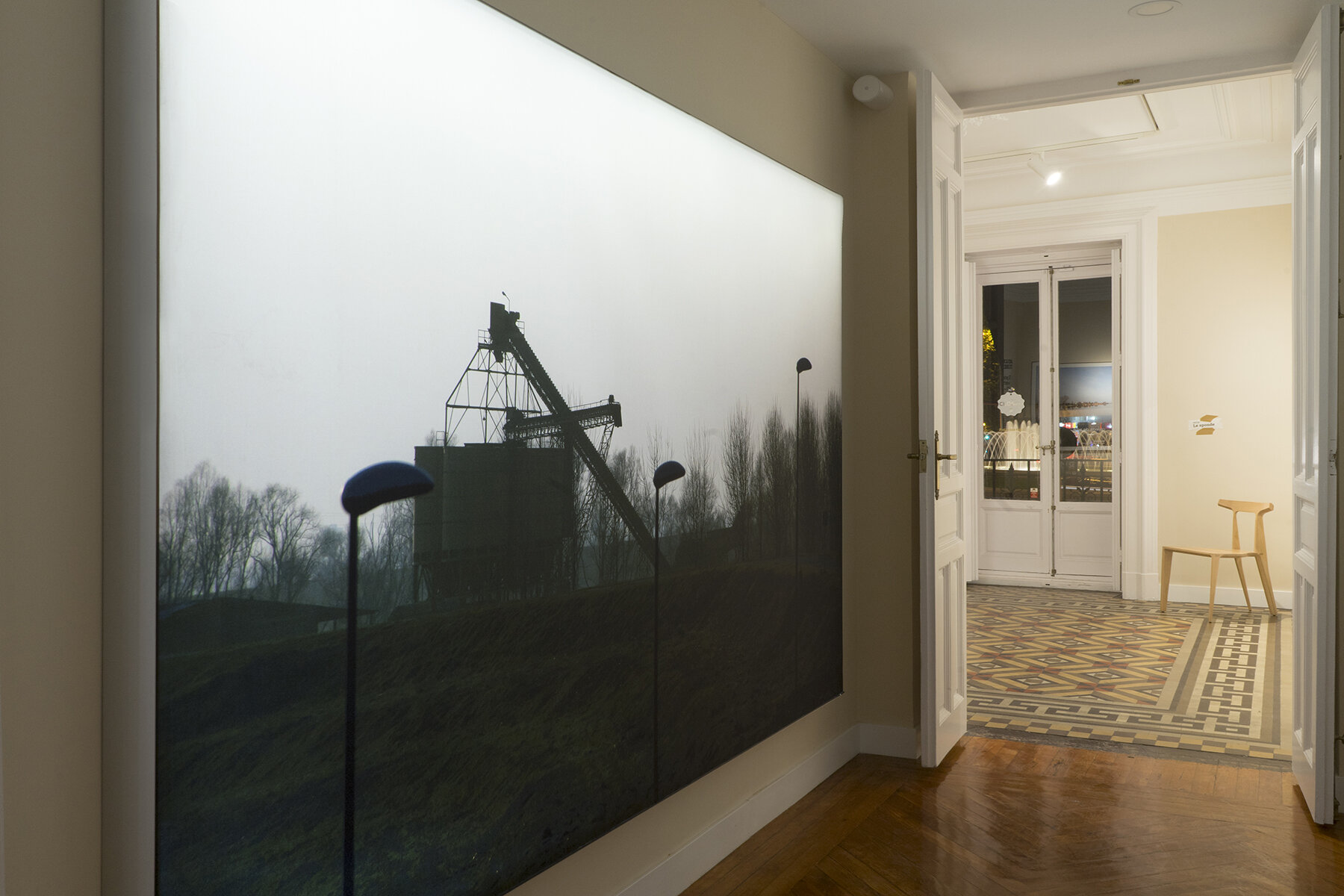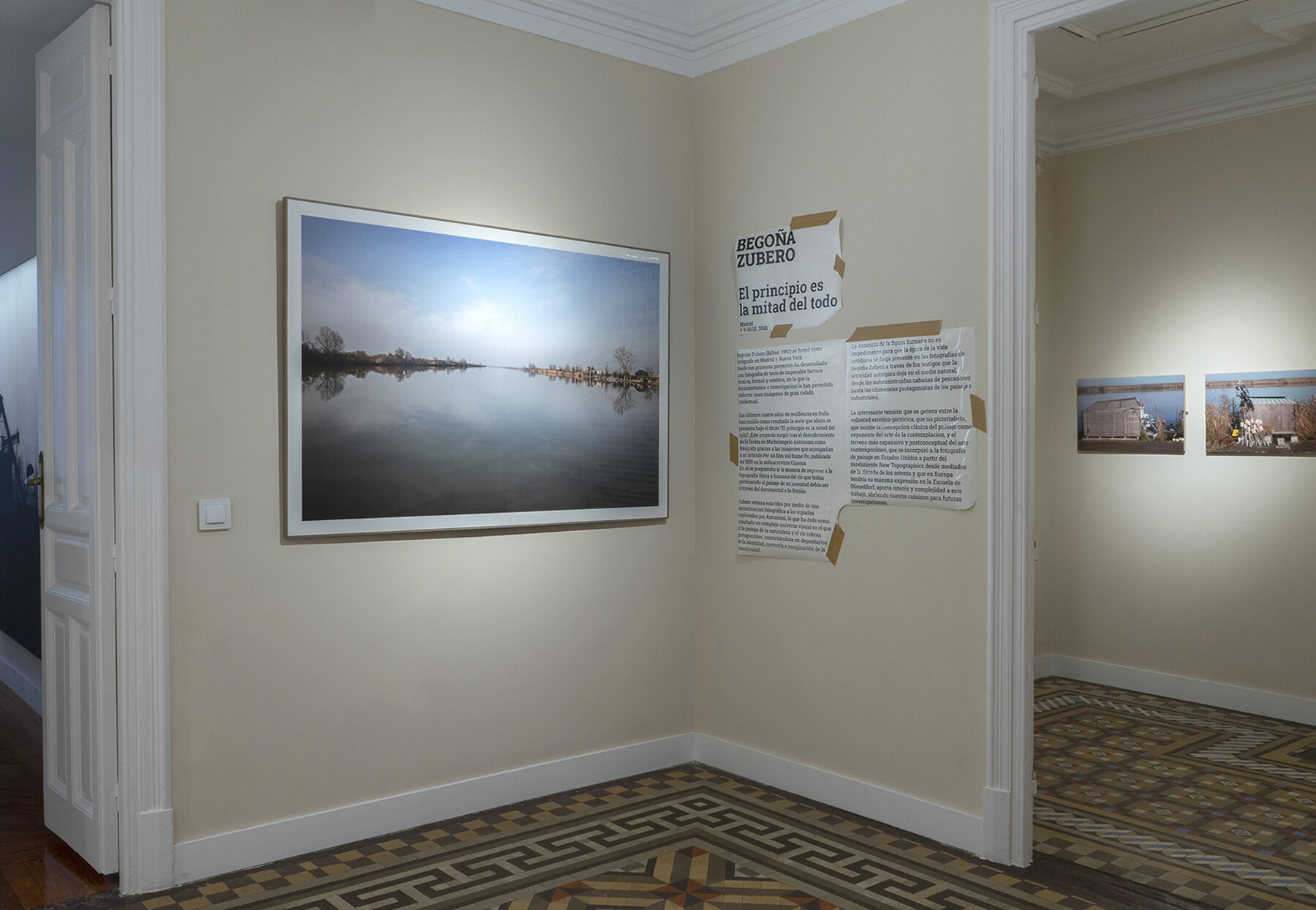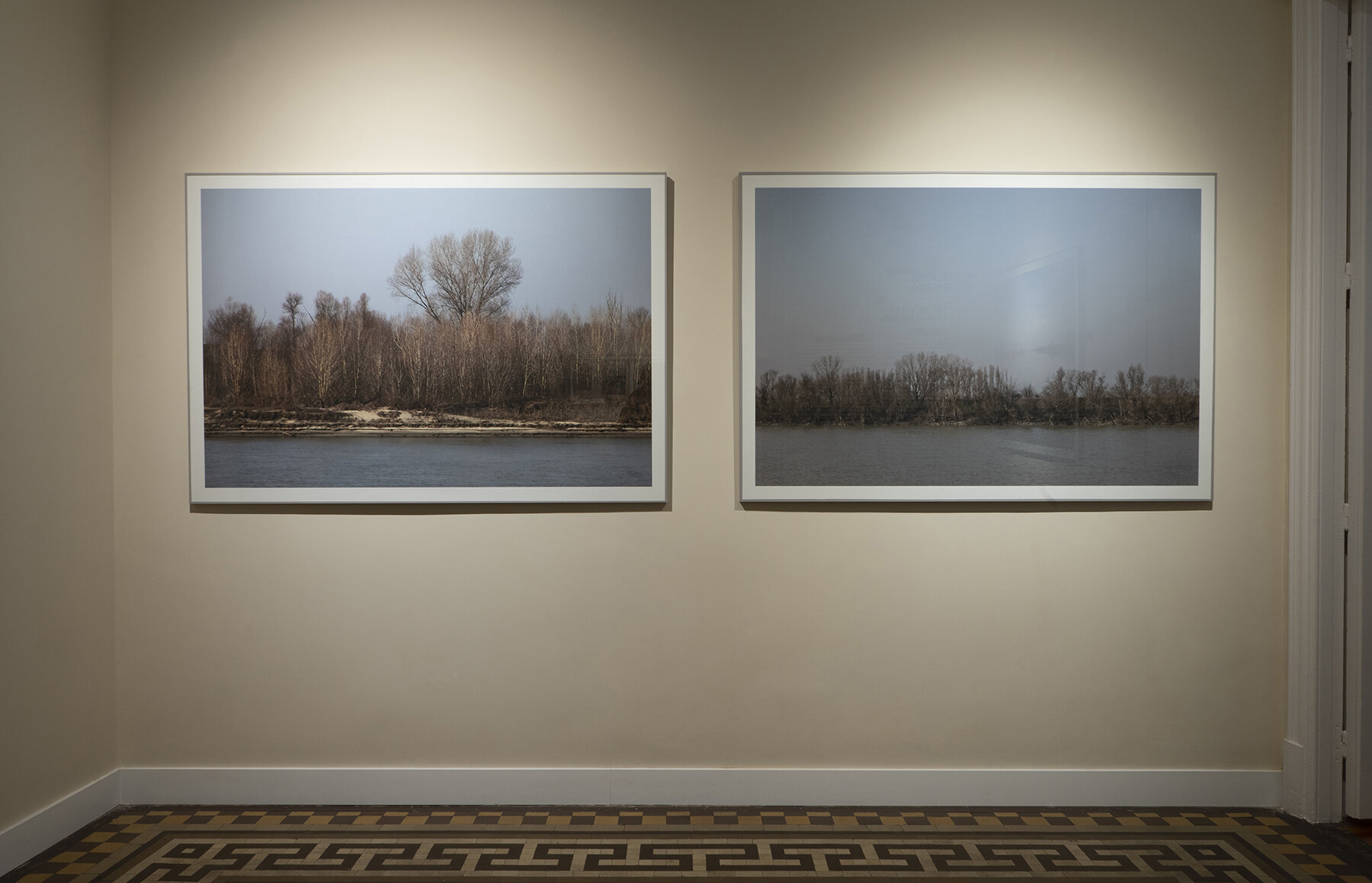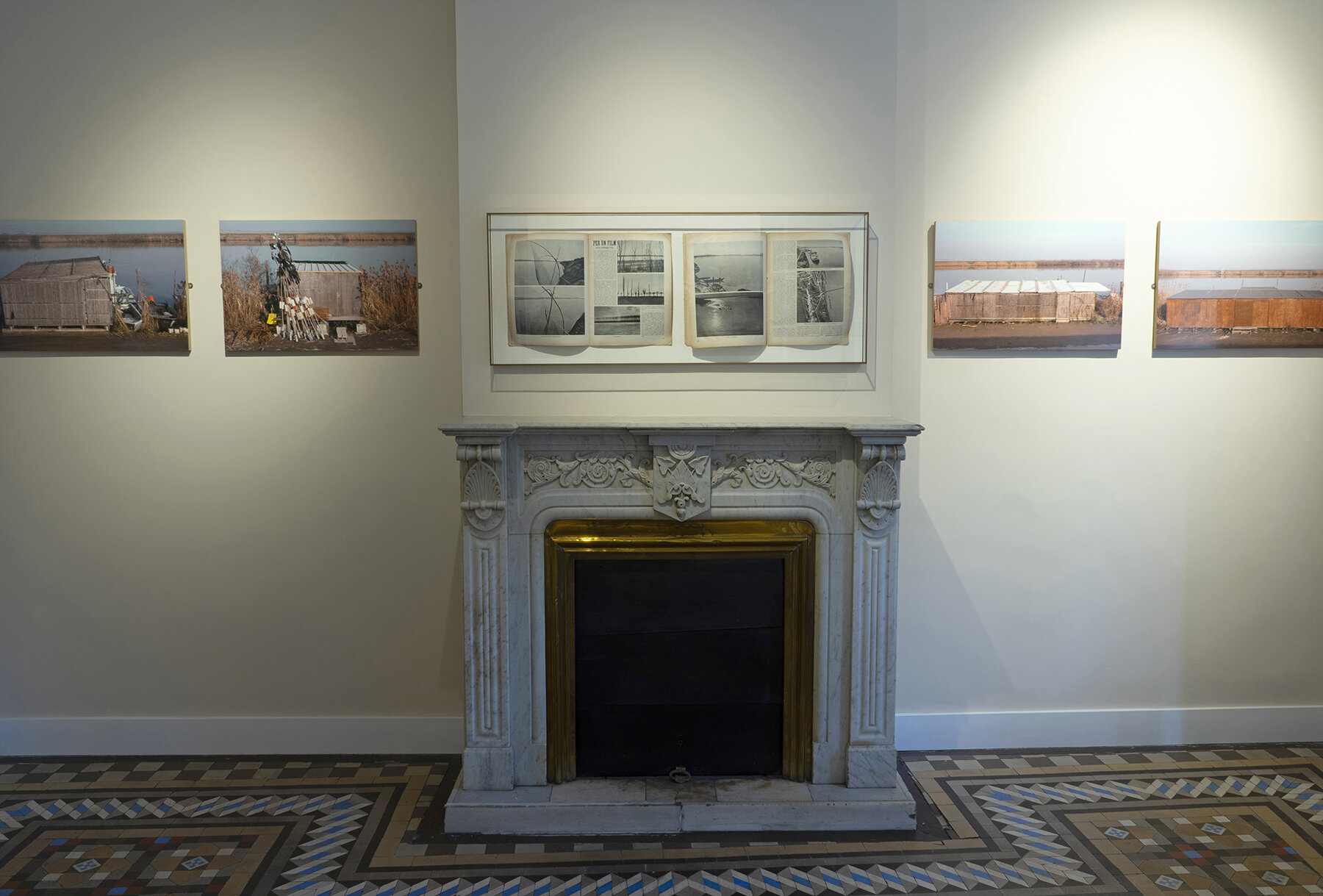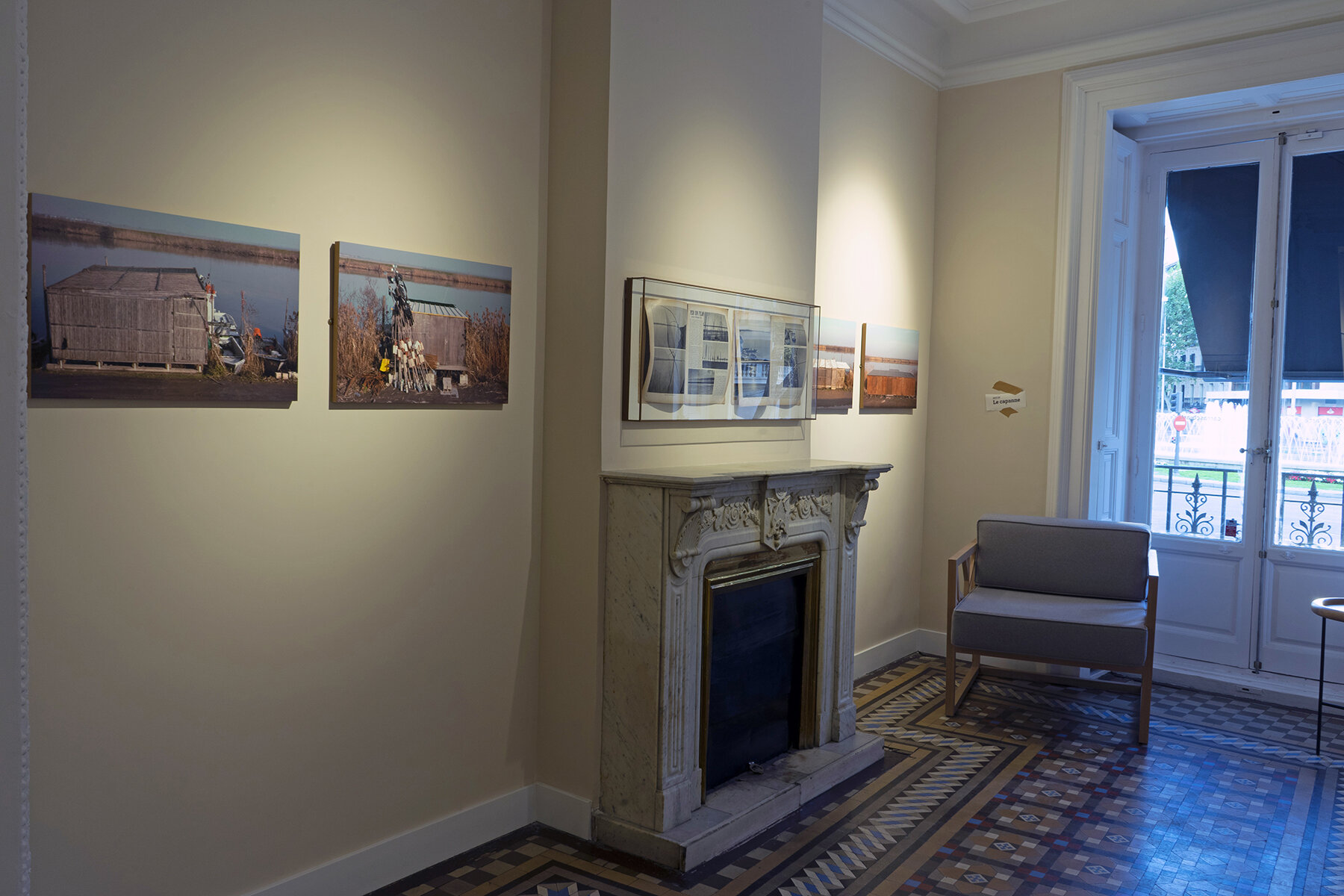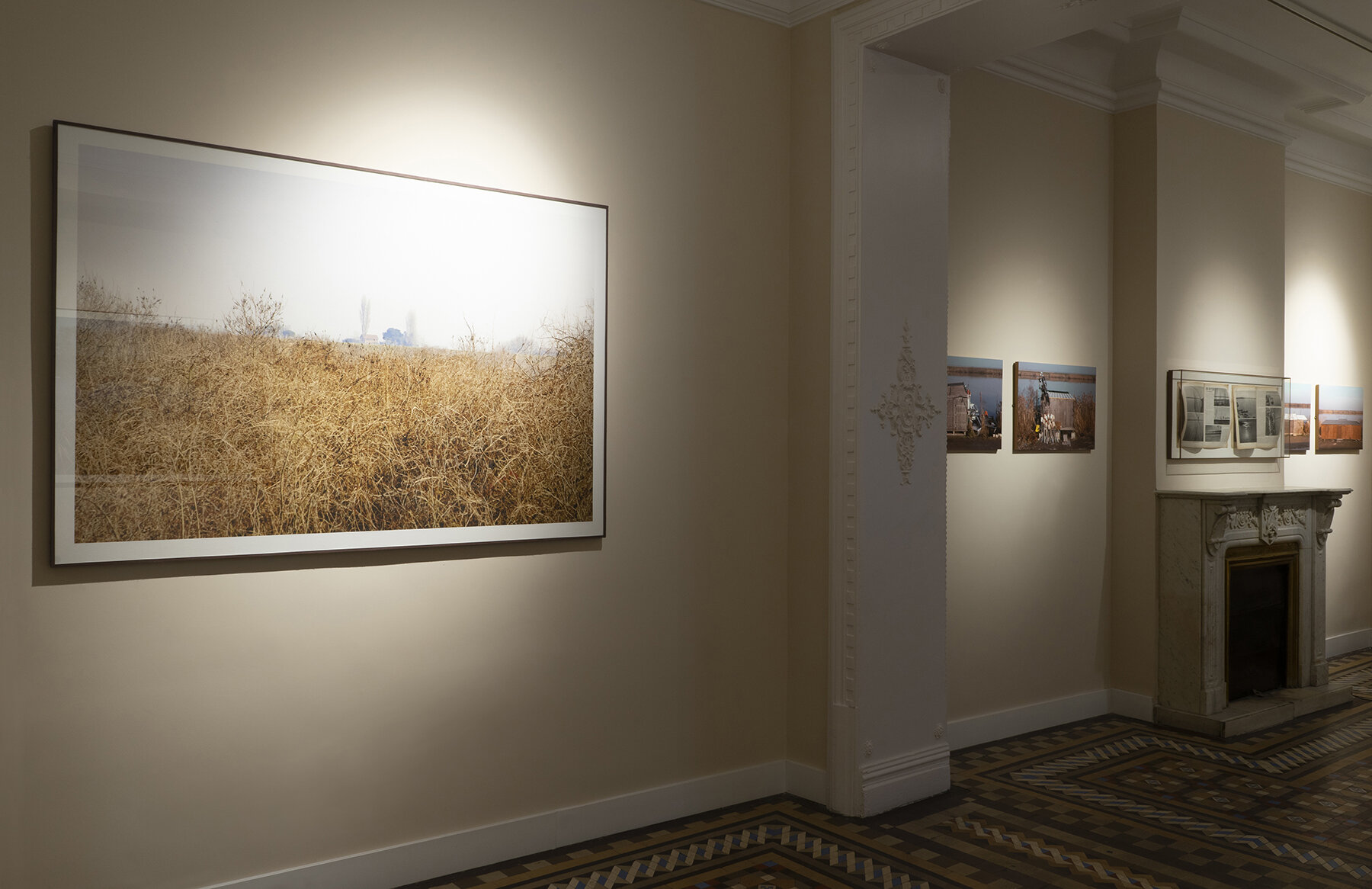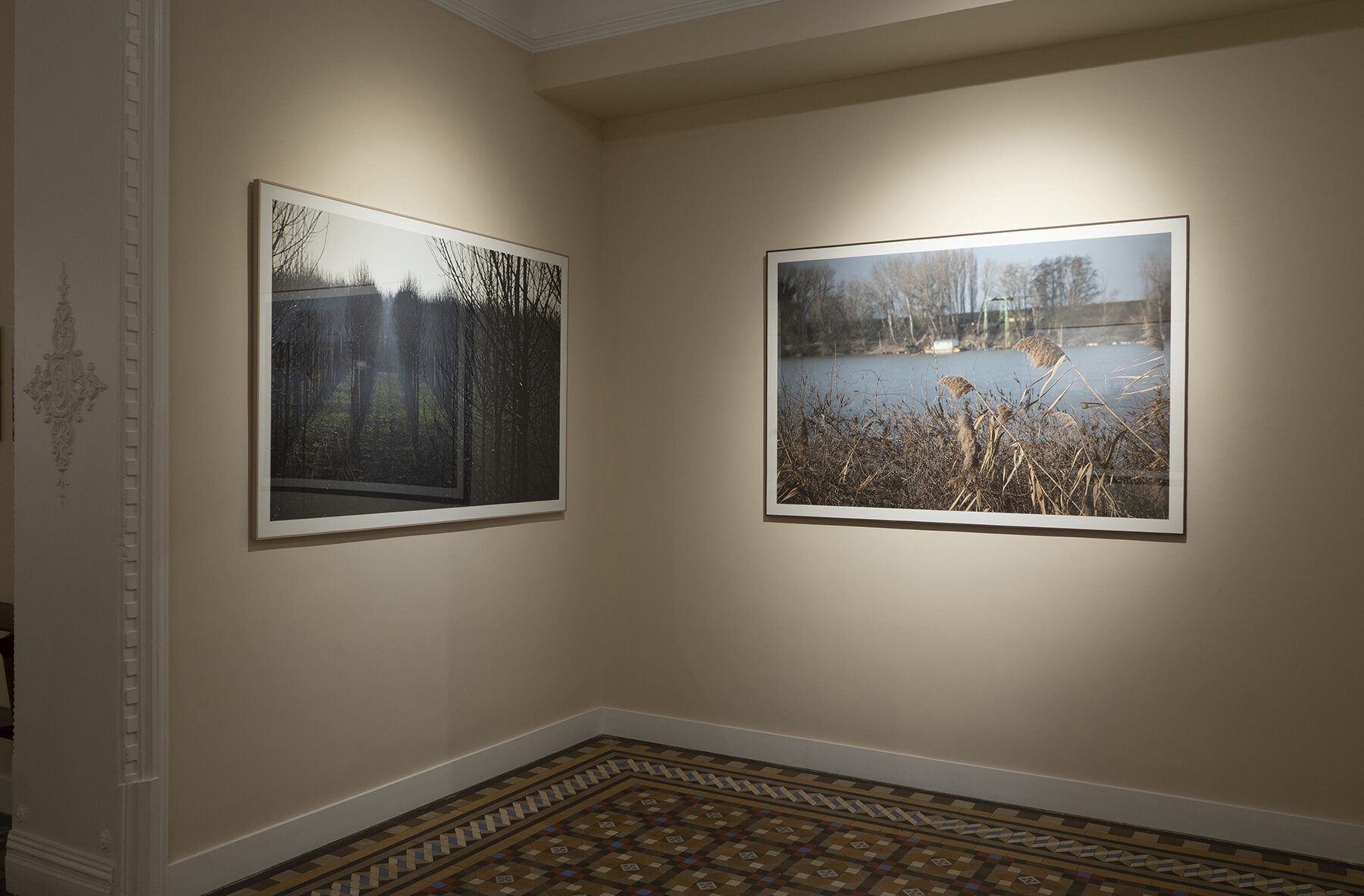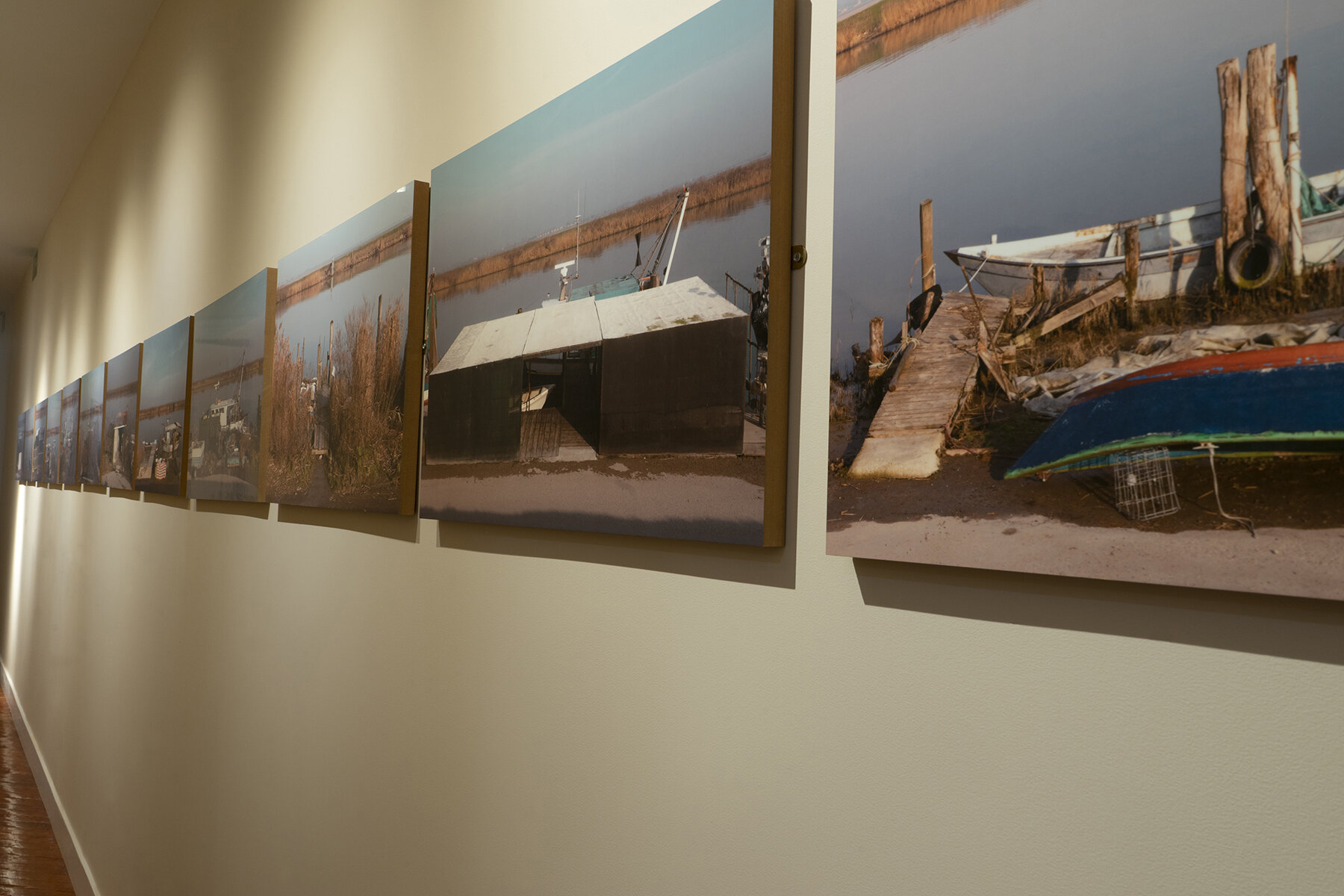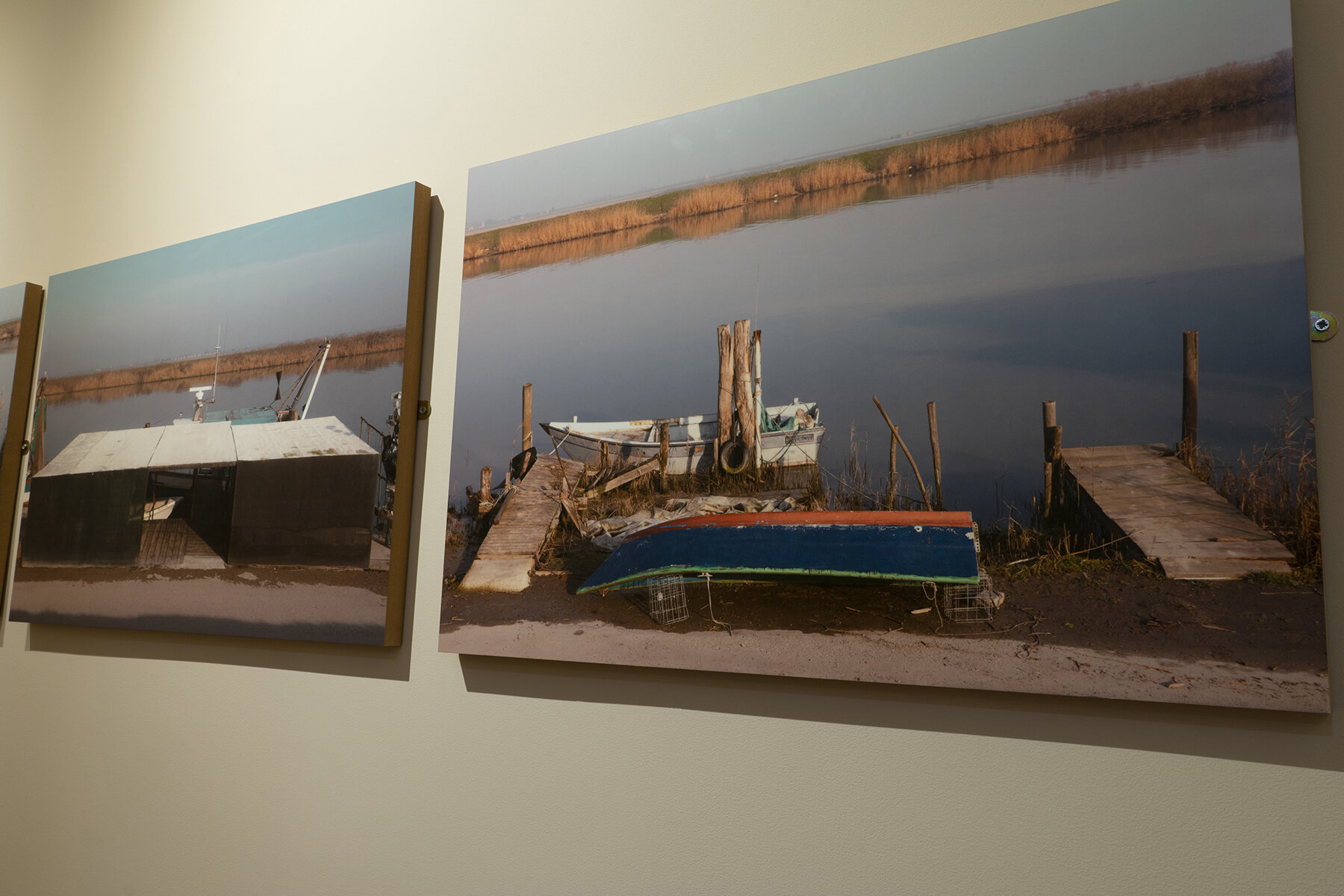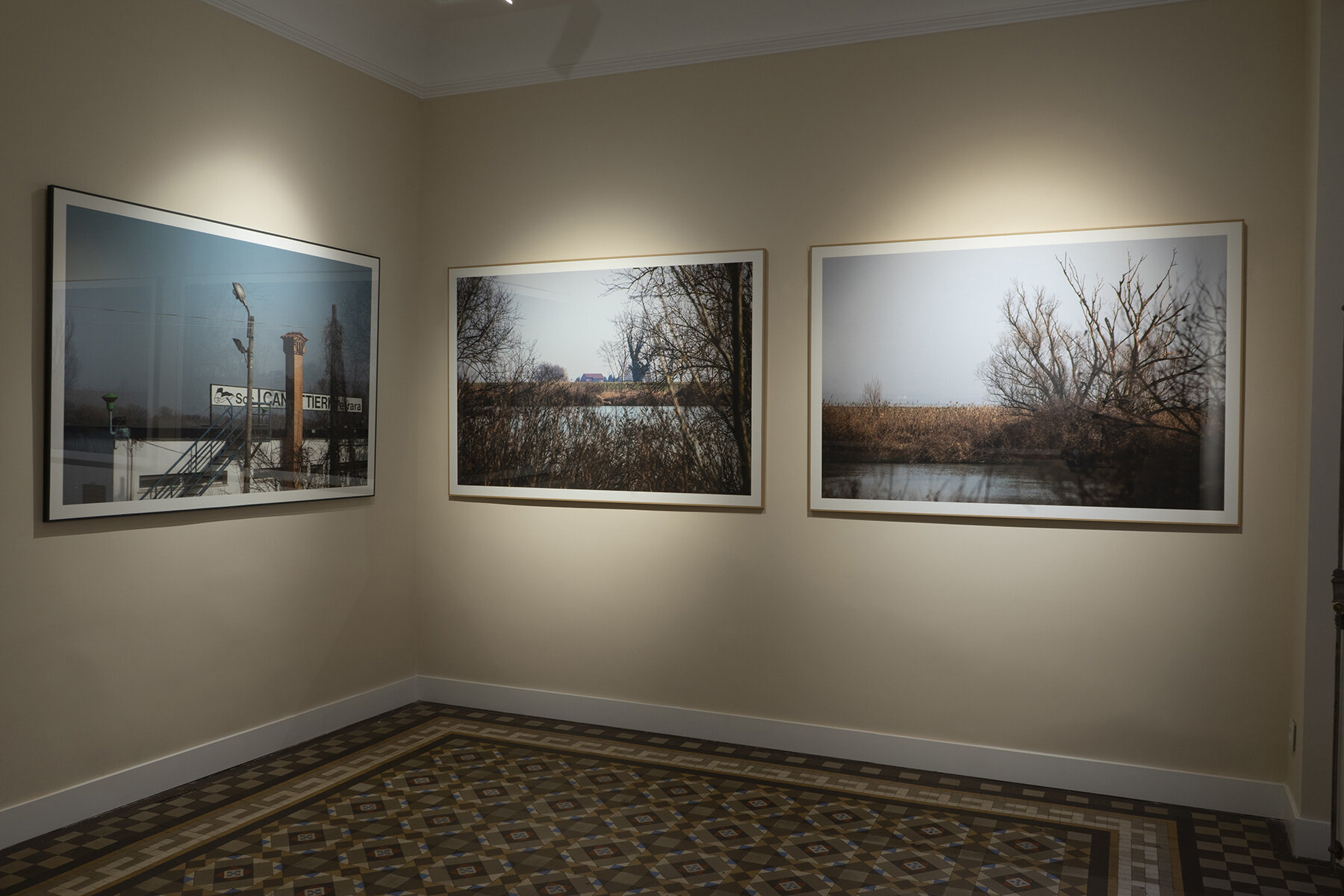El principio es la mitad del todo
Begoña Zubero
The last four years Begoña spent residing in Italy have resulted in the series that is now being presented under the title “El principio es la mitad del todo”. This project emerged after discovering Michelangelo Antonioni’s facet as a photographer thanks to the images illustrating his article Per un film sul fiume Po, published in 1939 in the mythical magazine Cinema. In it he wondered whether the way to return to the physical and human topography of the river that had been a part of the landscape of his youth should be by means of a documentary or fiction.
Zubero takes up this idea using a photographic approach to the spaces explored by Antonioni, which has resulted in a complex visual universe in which the landscape plays a leading role through photography, sculpture, video and the installation. Even though the landscape can be understood as a break with her previous work, that is the case only in its formal aspect since the idea underpinning it is the same as the one she had previously worked on in her project Existenz, a tour of the architecture of power of 20th-century European totalitarian regimes; here she explores the importance of the idea of record and memory. Now she no longer does so through monumental constructions but through images in which nature and the river play a leading role and become the stewards of the identity, memory and imagination of the group.
Zubero takes up this idea using a photographic approach to the spaces explored by Antonioni, which has resulted in a complex visual universe in which the landscape plays a leading role in photography. Even though the landscape can be understood as a break with her previous work, that is the case only in its formal aspect since the idea underpinning it is the same as the one she had previously worked on in her project Existenz, a tour of the architecture of power of 20th-century European totalitarian regimes; here she explores the importance of the idea of record and memory. Now she no longer does so through monumental constructions but through images in which nature and the river play a leading role and become the stewards of the identity, memory and imagination of the group.
The absence of the human figure does not prevent the epic of daily life making itself present in Begoña Zubero’s photographs through the witnesses left by anthropic activity on the natural environment, ranging from the self-built fishermen’s huts to the chimneys featuring in the industrial landscapes.
What provides this work with interest and complexity and opens up new paths for future research is the interesting tension generated between the aesthetic-pictorial (but not pictorialist) intention, which takes on the classical conception of the landscape as a component of the art of contemplation, and the more expansive, post-conceptual field of contemporary art; this was incorporated into the landscape photography of the United States after the New Topographics movement halfway through the 1970s and which in Europe was to have its maximum expression in the Düsseldorf School.
We received the enjoyable visit of the Ambassador of Italy in Spain, Riccardo Guariglia (photo left). Good moments on talking about art and culture from Italy and Spain triggered by the exhibition “El principio es la mitad del todo”, from photographer Begoña Zubero (photo right).
serie Le sponde nº1
serie Le sponde nº7
serie Le sponde nº27
serie Le sponde nº30

